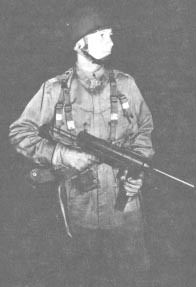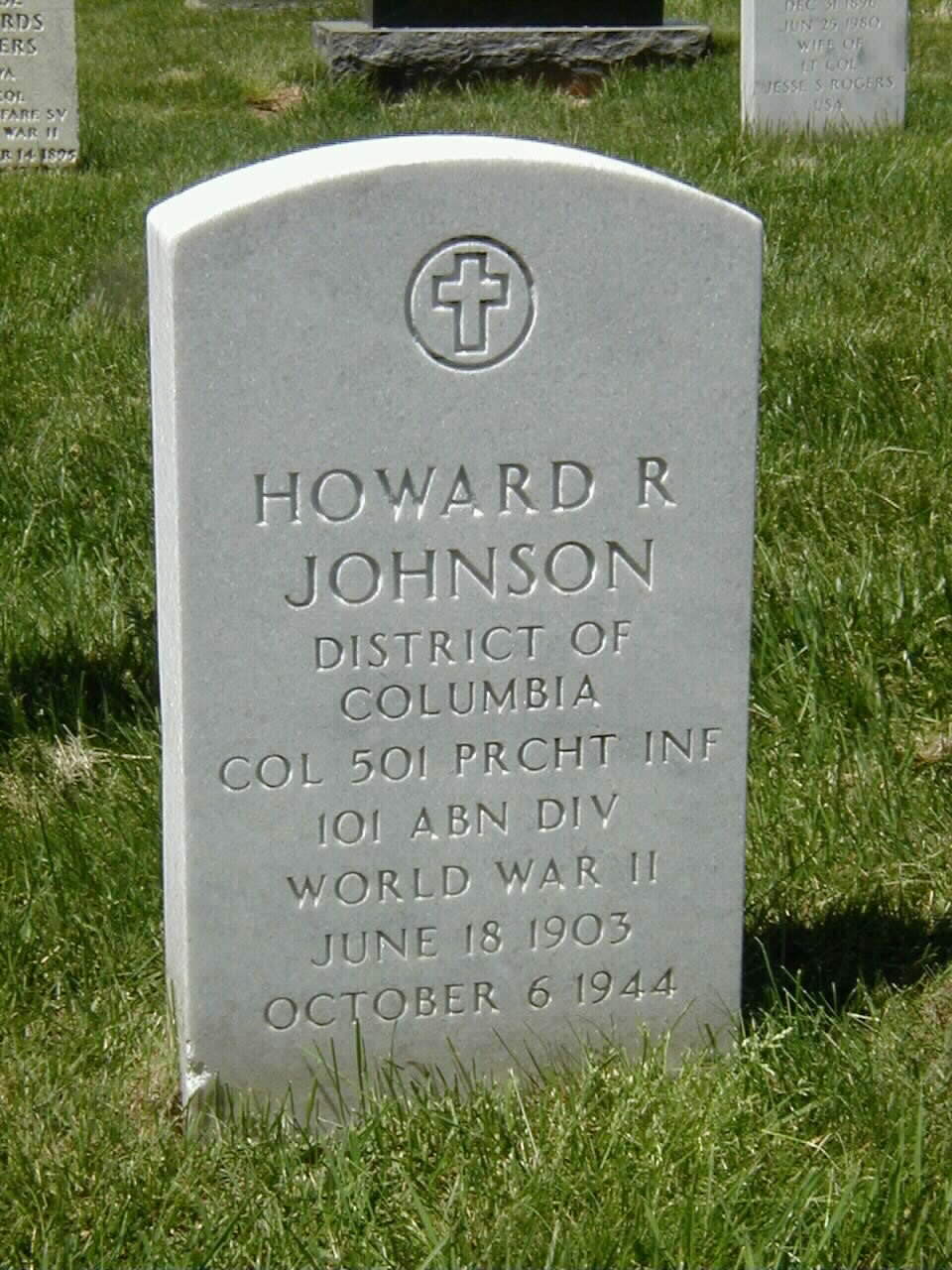Colonel Howard Ravenscroft Johnson was born 18 June, 1903, son of a shipbuilder in Maryland.
Colonel Johnson graduated from Central High School in Washington, D.C., then attended Annapolis Naval Academy. However. before graduating from Annapolis, he left to become an Army Air Corps pilot in Texas. Rejected from pilot training due to “insufficient side vision”, Johnson remained in the Army throughout the 1920's and 30's serving in the Canal Zone, ar Fort Sill, Oklahoma, and in Tientsing, China.
He was at Fort Meade, Maryland in the late 1930's, when troops were training with wooden guns. In the early 1940's, he was test driving a jeep, when he flipped the vehicle over, breaking vertebrates in his spine. After recuperating, he was offered initial command of the First Special Service Force, but turned it down because he doubted that it would amount to anything.
Sick of the pretend war and games of the interim years, Johnson longed for a combat command, to form a unit with which he could fight force with greater force. He was given command of the 501st Parachute Infantry Regiment upon it's activation at Camp Toccoa, Georgia, in November, 1942. There, he forged one of the best trained, most high-spirited regiments in the World War II Army. Each member of his Geronimo Regiment was infused with Colonel Johnson's fighting spirit. He led the regiment to Fort Benning for parachute qualification, then to Camp Mackall, North Carolina, and 2nd Army maneuvers in Tennessee in late 1943.
Sailing to England in January, 1944, the 501 was attached to the 101st Airborne and jumped into Normandy with that unit on D-Day, 6 June, 1944. On 7 June, elements of the 501, led by Colonel Johnson, wiped out the 1st battalion of the German 6th Parachute Regiment at la Barquette, France and the 501 was awarded a Presidential Unit citation for the Normandy battles.
The 501 parachuted into the Netherlands on 17 September 1944, fighting up Hell's highway from the Eerde-Veghel area in September and holding positions on the Neder Rhine River west of Arnhem in October-November. On 8 October, 1944, while inspecting ‘D' company positions behind the dike west of Driel, Holland, a large shell fragment struck Colonel Johnson in the lower abdominal area. Although he survived for two hours, he died, leaving his beloved regiment to command of Lieutenant Colonel Julian J. Ewell, West Point, 1939. Colonel H.R.Johnson, serial # 0-16673, was initially buried near Nijmegen, but was re-interred in Arlington National Cemetery several years after World War II ended. He was survived by wife Mary, a son and a daughter.
Colonel Howard R. Johnson was one of the dynamic and legendary combat commanders of the U.S. Army in World War II. One of his officers wrote: “In an age of faint ideals and quibbling uncertainties, he was like a steel knife.”
Photo Courtesy of the United States Army
Courtesy of Kangaroo Chronicle, 101st Airborne Division
Commanding the 501st Parachute Infantry was the U.S. Army’s most flamboyant
parachute officer: Colonel Howard R. Johnson. Originally Johnson had started out
his military career as a sailor. But after two years as a midshipman at Annapolis
he transfered tot he Army and became an infantry officer. Much like the Armored Corps’ General George S. Patton, Johnson had no patience for weakness of any kind among his subordiantes, and he seemed to have an insatiable desire to prove how tough and brave he was.
Shortly after forming his regiment at Camp Toccoa, Georgia, Johnson took it to Fort Benning for jump training. And while his troops where learning the basics of parachuting, Johnson, already a qualified paratrooper, would demonstrate the kind of courage he expected from everyone by personally making, depending on the weather, three to five jumps a day.
Frequently yelling at his assembled regiment that, “We are the best!” the fire
eating Johnson promised to lead the 501st into battle and win the war with it. And
when the war was over the 501st has as good a claim on winning it as any
fighting outfit did.
But Colonel Johnson never lived to boast about his feats of his beloved regiment. Carrying into battle his overpowering urge to constantly display fearlessness, the Colonel would allways refuse to take cover while under German artillery fire (note: Another reason was that he was deaf so he didn’t hear incoming artilery). His bravery – or foolhardiness – was to cost him his life in Holland and deprive America of one of its finest combat leaders.
One such mortar attack, near Heteren, on 08 October 1944, fatally wounded
Colonel Johnson. As he was being evacuated, his last words to Lieutenant Colonel Ewell were, “Take care of my boys”.
Colonel Johnsonn was our best known loss, but with him we lost 661 other
fine soldiers. LTC Ewell, a taciturn West Pointer, succeeded Colonel Johnson. Much less an extrovert than Johnson, he more than made up for any lack of “flash and dash” with a keen mind, tactical prescience and all around professional competence.
Michael Robert Patterson was born in Arlington and is the son of a former officer of the US Army. So it was no wonder that sooner or later his interests drew him to American history and especially to American military history. Many of his articles can be found on renowned portals like the New York Times, Washingtonpost or Wikipedia.
Reviewed by: Michael Howard


